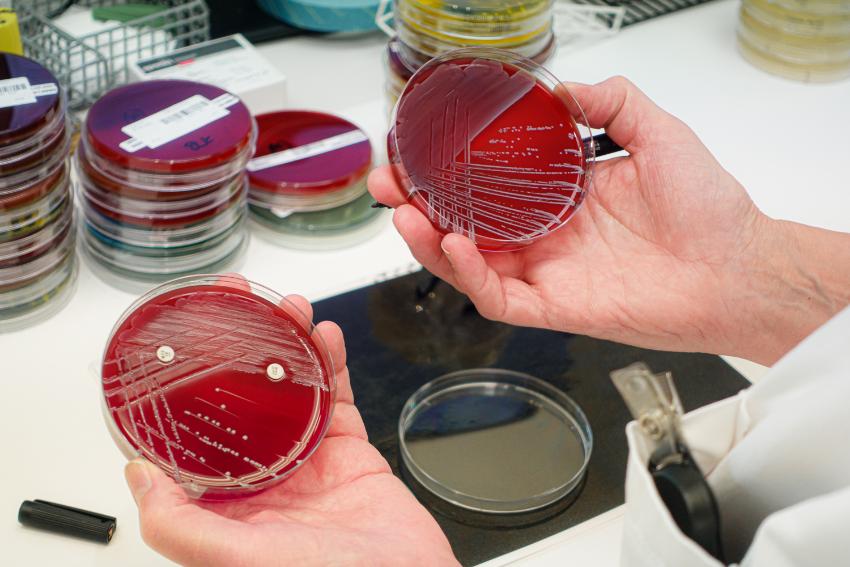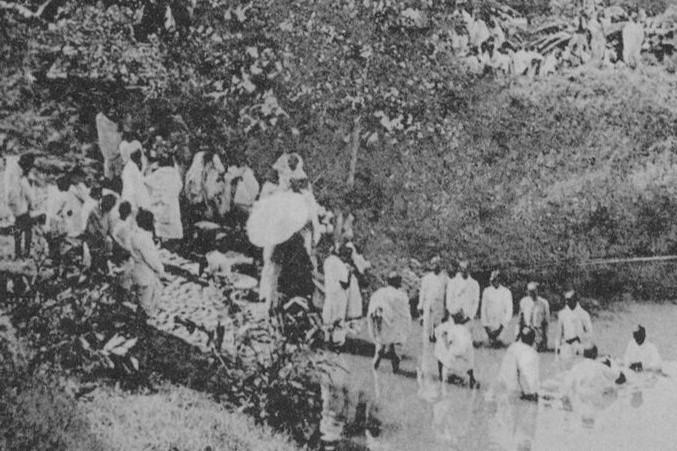Who do you trust? By Gunhild Hoogensen Gjørv, Professor, Peace and Conflict Studies, UiT
This pandemic was the security scenario we were least prepared for, and it requires a comprehensive approach. Security is a community responsibility, and is highly dependent upon you and me. This is also a test for totalforsvaret.
Just like the fall of the Berlin wall and the collapse of the Soviet Union, we really didn’t see this coming.
The possibility of a global pandemic has been thrown around as a hypothetical, but had this situation – in particular health - been considered more broadly as a security issue, we might have thought about and prepared for this differently.
Framing a pandemic as a security issue does not mean “it’s time to panic.” Quite the opposite. It requires clear heads and the best information possible, often in a situation of incomplete information. Today we are surrounded by incomplete information, misleading information, disinformation, and in fact, too much information (an “infodemic”).
Security or politics?
Security is related to, but different from “politics”. Politics is a place of contestation, where we argue about what we value and what to do about it. That’s the daily life in parliament, in our municipal councils, and increasingly on our social media. The debate reflects our democracy, which is important. Politics involves multiple actors (governments, people, civil society organisations, businesses, etc.) that act and react to their environments on the basis of a set of values they hold. Sometimes these values are shared, sometimes not.
Politics includes debates about distributive social systems that provide access to adequate services (such as health), and the maintainance of law and order (justice and defence). These practices become security related, however, when they are deployed for purpose of ensuring the survival of what we value for the future. This does not rely just on governmental institutions, but also involves us. What people do, what WE do, matters for our own security and that of our community, our state, and the world.
Trust and Total Defence:
Security requires a high level of general, societal trust. Generalised trust is embodied in the “dugnad” concept which focuses on security as a social good, where everyone chips in to the best of their ability, making sure to follow the same rules (usually under the guidance of local or national authorities), and does so with the expectation that everyone else reacts in the same way.
Totalforsvaret is a defence concept that relies both civil and military authorities to coordinate and cooperate to address a crisis to society and country. A vulnerability in the totalforsvarskonsept is that while different authorities work to coordinate their efforts, we don’t really know how the civilian population will react in a crisis. We are getting some indication about citizen reactions now though. During this pandemic, it is absolutely clear that what WE do in a crisis situation is decisive to our success.
At the same time, it is increasingly clear that average citizens are bombarded with information. Some of this is misinformation, which is just inaccurate information that is shared mostly out of ignorance. Some of this, however, is disinformation, which is information that is purposefully distorted to achieve a political goal, such as reducing generalized trust by polarizing opinions.
When generalized trust is reduced, security is reduced as well. This poses a problem for totalforsvarkonsept proponents. The combined civil-military authorities rely on generalized trust to most effectively conduct their operations during a crisis. Citizens are more inclined to support measures relying on generalized trust (such as the current “dugnad” on social distancing) when they don’t perceive a political agenda behind the crisis. For the most part the corona crisis has not become very polticised, so trust remains relatively high.
Nevertheless, disinformation is also being used to polarize views and generate selective distrust, as noted in a recent EU diplomatic service report. Selective distrust occurs when people pick and choose which guidelines, measures, or authorities to heed, often on the basis of who they are or the politics they represent.
Generalised distrust creates an even bigger problem. It operates as people disregard their contribution to the social good and instead act according to their own instincts or alternative information, disregarding guidelines set by authorities.
Our security
The ways we citizens choose to act and react to disinformation and “infodemics” (too much information) say a lot about how successfully civil and military authorities can establish security in society. This does not mean blind, thoughtless trust in authorities, but it does mean understanding how we are an integral part of the security dynamic in our society. Our role is to contribute our strengths as well as ensure our democracy is kept intact. How we choose to work with, or against, authorities does make a difference.
It makes a difference when some or many of us express distrust in a unified response to a threat, for example by defying quarantine regulations, hoarding toilet paper, heading off to cabins and possibly causing an even greater burden on rescue and health care systems, or by responding with anti-social bravado (I am not afraid of a disease).
Our individual responses expose both our strengths and our vulnerabilities – otherwise called our “resilience”. Our resilience says something about how easily we crack as a society, or not. The current dugnad gives us an opportunity for all of us to reflect on trust as a common value, and our role in creating and maintaining security.


